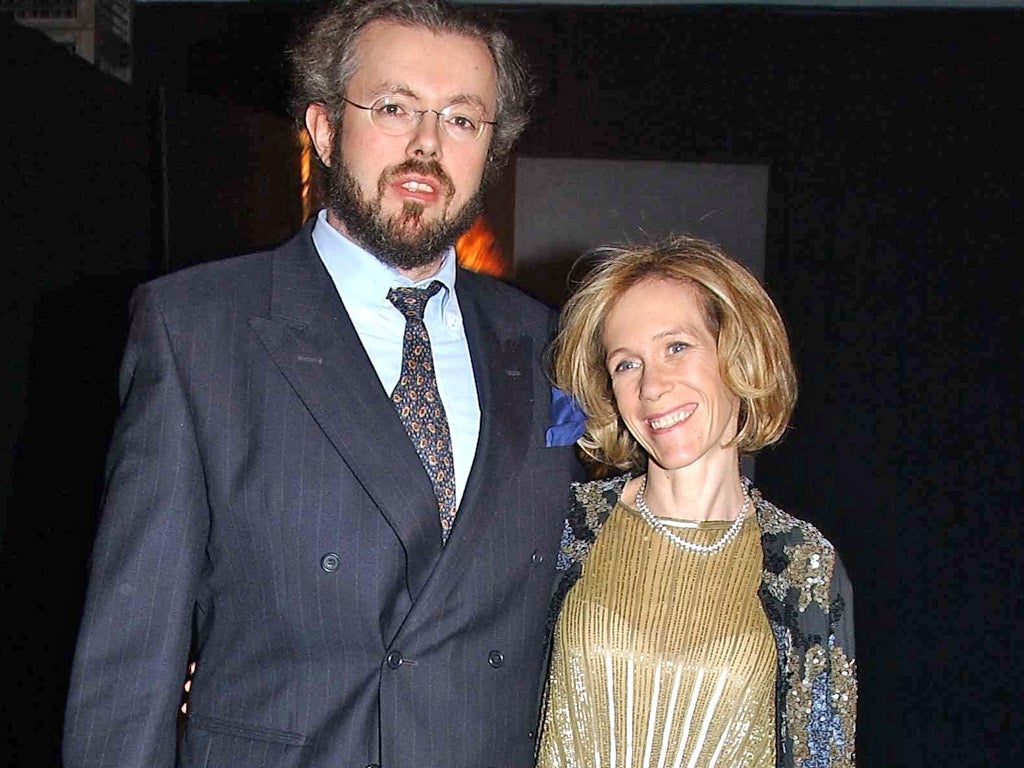How riches attract 'elite' drug dealers
Even as the Rausings checked out of rehab, they were surrounded by well-connected pushers

When she stood on the doorstep of her Belgravia townhouse shortly after her arrest for carrying a cocktail of Class A drugs into the US embassy in her handbag, Eva Rausing appeared dishevelled but contrite. In a statement, she said: "I have made a serious mistake, which I very much regret... I hope in due course to get back on track and become the person I truly want to be."
It was a brave and doubtless heartfelt declaration of intent in a life already, by 2008, punctuated by narcotics binges and visits to rehabilitation centres for the then 44-year-old socialite who sought to give purpose and structure to a life of conspicuous privilege and bottomless wealth by philanthropy.
Together with her Tetra Pak heir husband, Mrs Rausing, who had four children, regained a veneer of if not respectability then at least understanding in the four years after being charged with drug offences as they attended glittering parties, fundraising balls and provided multi-million pound patronage to addiction charities.
While figures including Prince Charles argued that Eva should be given a "second chance", others were less impressed. Sir Ian Blair, the former Metropolitan Police Commissioner, made it known that he saw the decision to drop charges against the couple after £2,000 of crack cocaine was found at their home in return for a conditional caution, as amounting to one law for the rich and another for those who aren't. Yesterday the extent to which the public persona of the recovering and repentant addict was the flip side of a still-tarnished coin was becoming clear as police continued to investigate Mrs Rausing's death and pieced together the events that preceded the arrest on Monday of her husband, Hans K Rausing, driving erratically in south London while his wife's body lay in their home.
Friends of the couple said that their attempts to leave behind their drug abuse were hampered by the coterie of "elite" dealers who continued to surround them even as they checked out of rehab clinics and recovered some of the strength required to overcome addiction.
Pictures of the pair taken in recent weeks underlined the extent to which the warning bells were once more ringing. Her hair long and unkempt and carrying a bottle of mouthwash used to treat gum disease, Mrs Rausing looked far from the woman pictured in a emerald necklace next to her clean-shaven husband at a society ball in 2004. Mr Rausing, stooped and unshaven in an ill-fitting jacket, has been seen walking along the streets of Chelsea clutching a pouch of rolling tobacco, a shadow of the glossy-haired figure of a few years ago who stands to inherit a share of his father's £4bn fortune.The role played by crack, cocaine and heroin – all found in the couple's home in 2008 – in the events of this week remains to be ascertained. But in the past it seems the Rausings had access to a "closed market" of drugs, a network of high-end dealers offering the sort of discretion required by super-wealthy users at the sort of prices that the super-wealthy are willing to pay.
The Independent understands that central London and other monied corners of the country are serviced by a number of well-connected dealers, often considered friends as much as pushers, who source high-purity drugs, delivered in a manner guaranteed not to attract unwarranted interest.
The grim arabesque of addiction and cure that followed Mrs Rausing in the final years of her life belied deeper issues and inter-dependency with her husband. Mr Rausing reportedly once refused to enter a rehab clinic in Thailand because it meant he could not be with his wife, whom he had met during addiction treatment in the 1980s. In 2010, Mrs Rausing turned her paranoia on his family – his father Hans, who lives frugally on the family estate in Sussex with his wife Marita, and his sisters, Lisbet, a scientist, and Sigrid, owner of the literary magazine Granta. She wrote in an email: "I feel his family has acted dishonourably towards him."
The Rausings and Eva's own family, whose efforts to help the couple turn around their lives are known to have been extensive and unceasing, have only been able to look on in despair.
Subscribe to Independent Premium to bookmark this article
Want to bookmark your favourite articles and stories to read or reference later? Start your Independent Premium subscription today.
